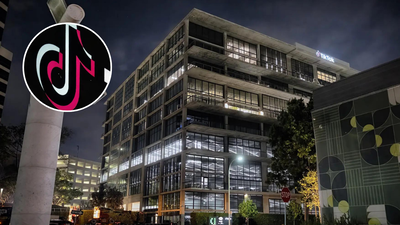
A US federal appeals court has upheld a law requiring ByteDance, the China-based parent company of TikTok, to divest its US operations by January 19, 2025, or face a nationwide ban on the app.
The decision, delivered on Friday, intensifies the platform’s legal and operational challenges while escalating tensions between the United States and China.
The ruling by a three-judge panel of the US Court of Appeals for the District of Columbia was described as a significant victory for the Justice Department, which has long argued that TikTok poses a national security threat.
The court stated that the divestment law passed with bipartisan support, was designed to protect US national security interests against potential threats from China’s influence over the app.
Contested future for TikTok
TikTok, which boasts 170 million users in the United States, is expected to appeal the decision to the Supreme Court.
The company argues that the divestment law infringes on First Amendment rights and constitutes censorship. “The Supreme Court has a strong track record of defending Americans’ free speech, and we are confident they will uphold this principle in our case,” TikTok said in a statement.
The law prohibits app stores and internet hosting services from offering TikTok after the deadline unless ByteDance sells its US operations.
While ByteDance has denied allegations of sharing data with the Chinese government, US officials have raised concerns over data security and potential manipulation of information on the platform.
Political dynamics
The decision leaves the ultimate enforcement of the ban in the hands of President Joe Biden, who could grant a 90-day extension if significant progress is made toward a sale, and President-elect Donald Trump, who will take office the day after the January 19 deadline.
Trump, who attempted to ban TikTok in 2020, has since reversed his stance, expressing opposition to a ban during his recent presidential campaign.
The ruling is already drawing criticism from free speech advocates. The American Civil Liberties Union (ACLU) called the decision “flawed and dangerous,” arguing it sets a troubling precedent for censorship.
Implications for tech landscape
If enforced, the ban could significantly reshape the social media landscape, benefiting rivals such as Meta and Alphabet’s YouTube. Meta’s shares surged following the ruling, reflecting investor optimism about reduced competition in the online advertising space.
Despite the uncertainty, TikTok has continued to expand its US operations, including reporting $100 million in Black Friday sales through its e-commerce venture.
However, analysts warn that a ban could disrupt content creators and businesses dependent on the platform while deepening the rift in US-China relations.
As the deadline looms, all eyes are on the Supreme Court and the incoming administration to determine TikTok’s fate in the United States.






